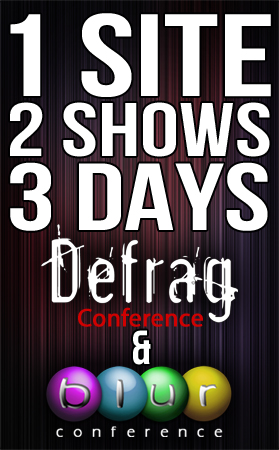This morning I came across a phrase from Mike Gotta of Burton Group: “shared situational awareness.” The phrase comes in the context of talking about how Twitter is evolving into the mechanism by which we are letting each other know about everything else (including our “out of office” status). Indeed, Graeme Thickins (Minnesota’s uber alpha-geek) has stated that Twitter is “the only email sig I need anymore.” That might be overstating it a bit (or it may not), but it does point to something that a lot of us involved in the twitter-experiment know: there is a shared space that is no longer living on the blog of person, but rather in the space between people; in the conversation; in the comments; in the twitterverse.
I can see the examples every day. When I wanted to introduce myself to Sam Lawrence, I did so via Twitter. When I “tweeted” about “shared situational awareness,” Paul Kedrosky responded by suggesting an appropriate acronym. And in nearly all cases, I’m not “sending a message” to anyone (nor are they to me), rather we’re all engaged in talking around something - in a (yep), “shared situational awareness.”
All of it dovetails into things that I keep reading from Clay Shirky. The “cognitive surplus” that people used to “spend” on TV is now spent interactively. The method for “brainstorming” is not an individual having a revelation, but a shared space that leads to an “aha.” Quoting Clay:
“Burt says good ideas are not typically the province of an individual having a brainstorm, they’re often an import-export business, they involve people who see across multiple lines of business and understand, ah ha, if the engineers knew what the designers knew and the designers knew what the engineers knew, we could actually do 10% more at 10% lower cost. Those kinds of intuitions can only be had when people are talking to each other outside the traditional lines. “
Perhaps, most interestingly (from my POV) is how session ideas like “Finding serendipitous information through context” are rising to the top of what Defrag attendees, speakers and sponsors want to explore. Its not just that information “finds me better.” Or that search “works.” Its that something happens in a shared space that both A) makes more intuitive how I deal with information; and B) leads to “us” discovering something. All of which is to say that the implicit, semantic, collaborative web is probably all of the above (implicit, semantic AND collaborative -which is really an explicit act).
What ultimate role does Twitter or wikis or semantic technologies play in all of this? Frankly, I’m not sure. But I do know that we won’t get there in a private space.

